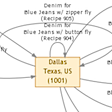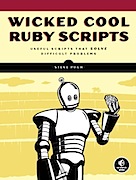 It’s approaching two weeks now since Ruby 1.9.1 was released, bringing with it not only a whole stack of extra performance and a new VM, but also a lot of compatibility issues. No pain, no gain!
It’s approaching two weeks now since Ruby 1.9.1 was released, bringing with it not only a whole stack of extra performance and a new VM, but also a lot of compatibility issues. No pain, no gain!
Thankfully, the Ruby community in its typical way has got to blogging, writing scripts, and what not, resulting in a flurry of useful links and resources for those brave enough to test the Ruby 1.9.1 waters. So here come 23 useful Ruby 1.9.1 links and resources! If you have any others you wish to add, please leave a comment as people will be checking those out too. Read More

 Priit Haamer is an Estonia-based Ruby developer who has put together a “
Priit Haamer is an Estonia-based Ruby developer who has put together a “

 2012 update: Still not up to speed with Ruby 1.9? Check out
2012 update: Still not up to speed with Ruby 1.9? Check out 




